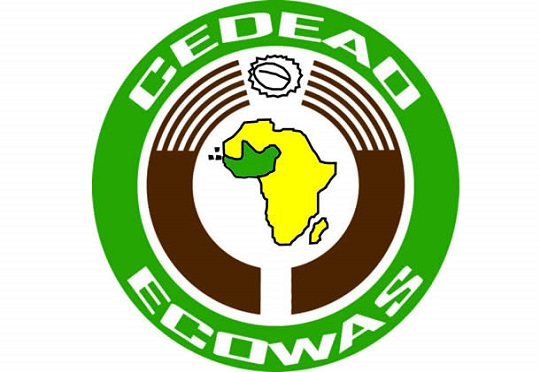ECOWAS moves against trade-based money laundering
Nigeria and other countries in the West African sub-region have taken measures to check trade-based money laundering in the West African region. The campaign is being championed through the Inter-Governmental Action Group against Money Laundering in West Africa (GIABA), a West Africa’s regional body against money laundering, terrorist financing and Proliferation Financing (ML/TF/PF). At a […]

Nigeria and other countries in the West African sub-region have taken measures to check trade-based money laundering in the West African region.
The campaign is being championed through the Inter-Governmental Action Group against Money Laundering in West Africa (GIABA), a West Africa’s regional body against money laundering, terrorist financing and Proliferation Financing (ML/TF/PF).
At a two-day National Sensitisation Seminar for Organised Private Sectors and Business Community on Anti-Money Laundering / Countering The Financing Of Terrorism (AML/CFT), the body said trade transactions has become a major avenue for money laundering.
This is just as the organisation said while there is no available statistics on the amount of money laundered through trade transactions, it has been estimated that over $80bn leaves the shores of Africa illegally annually.
- Extracting raw minerals without local processing deepens Africa’s underdevelopment – Tinubu
- ACJA: Inter-state criminality in Nigeria to end soon – Fagbemi
Director-General of GIABA, Mr. Edwin Harris represented by the Head of Nigerian Office of GIABA, Tim Melaye at the seminar disclosed that the Financial Action Task Force (FATF) signalled its interest in Trade-Based Money Laundering (TBML) by its publication of a report entitled “Trade Based Money Laundering” (TBML Report) in June 2006.
“Subsequently, in June 2008, the FATF issued its “Best Practices Paper on Trade Based Money Laundering” (FATF Best Practices Paper), providing more detail about TBML and how to prevent it.
“The TBML Report and the Best Practices of the FATF Reports) identify TBML as one of the three main avenues of money laundering and define TBML as the process of legitimising the proceeds of crime by moving value through trade transactions to disguise their illicit origins,” he said.
Among those in attendance were Abuja Chamber of Commerce and Industry (ACCI), the Kano Chamber of Commerce, Industry, Mines and Agriculture (KACCIMA), the Association of Bureau De Change Operators of Nigeria (ABCON), among others.
GIABA DG however appealed to trade associations to cooperate with it in the fight against money laundering and terrorism financing.
“GIABA and other sister institutions need your help because terrorists are very creative at finding money. To follow the money, we are aware of the several challenges,” he said.
Speaking with newsmen, the head of the Nigerian office stated that an estimated $88bn leaving the shores of Africa annually. This is a huge amount of money that would bring development into the continent.
“There is a lot of illicit financial flows leaving the territory and that is one of the things we must work together to curb,” he stated.
He added that Nigeria is also on course towards removing Nigeria from the FATF grey list of countries with deficiencies in combating money laundering, terrorism, and arms financing.
Vice-President of ACCI, Hajia Aisha Abdullahi said the trend of illicit financial flows is “disturbing.” She however said the ACCI is working with businesses and SMEs to ensure compliance in their dealings.
Also, ABCON President, Aminu Gwadabe stated that members of the association have been mandated to automate their transactions to avoid any illicit financial dealing.
